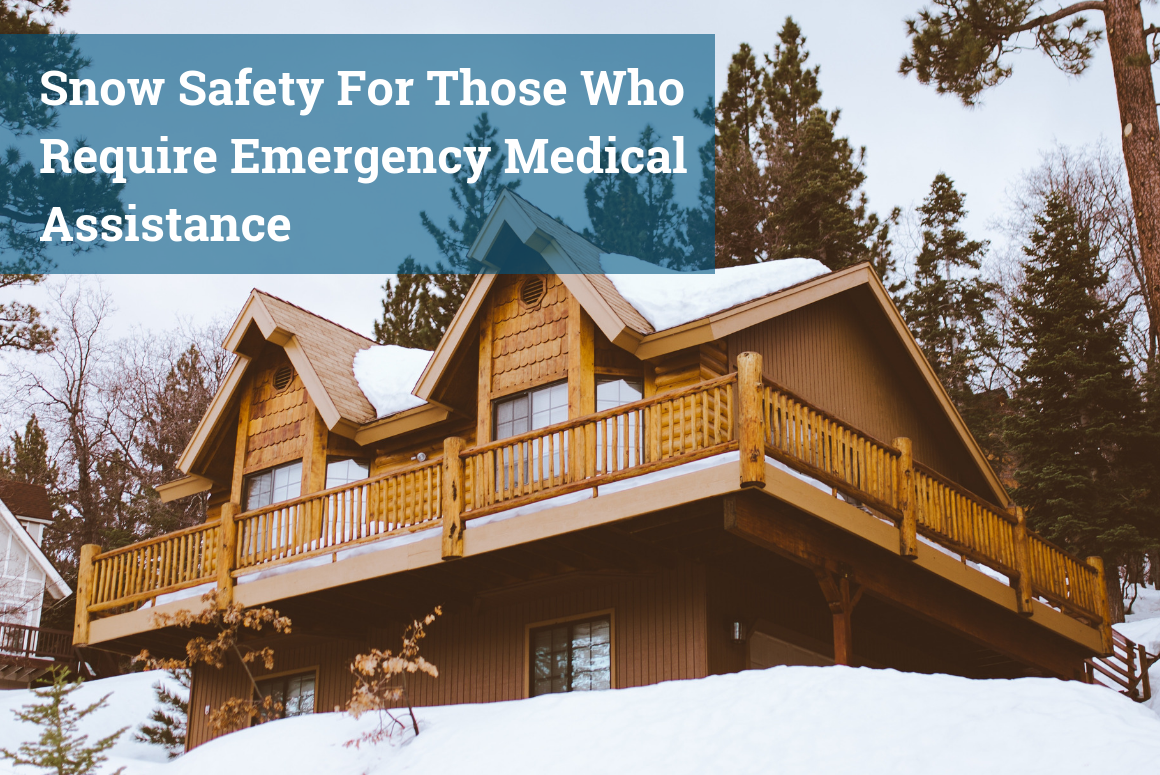Guest post by Jane Garbutt.
As the northern hemisphere lights their fireplaces in anticipation of snow over the festive season, there are those who find this time of year to be both scary and possibly debilitating. The number of people who rely on full-time caregivers is estimated to go up to 27 million by the year 2050 and with adverse weather, their vulnerability increases too. Those who live independently will need to rely on additional services to keep their properties accessible when those snowflakes make their appearance.
Keep Driveways And Doorways Clear
For years, families have been told about the virtues of salting your driveways and walkways as salt prevents ice from forming. While this is an effective means to keep the snow at bay, it could have some adverse effects. The first is on the environment as a fifty-pound bag of salt can pollute up to 10,000 gallons of water, which has a severe effect on the environment. The other reason salting might not be a good idea, is the pools of water that form on the surfaces of sidewalks and drives, slowly eroding the surface. This could result in cracks and holes. For those who need assisted care, uneven surfaces can prove difficult to navigate especially when mobility is an issue.
Instead of salting, a way to keep those driveways and walkways clear is by using a professional snow plowing service. It’s important that the plow is set at the right level to ensure that there is no damage to the drive. For smaller areas or regions with lower snowfall that don’t quite warrant the use of a snow plow, hiring a gardening business that offers snow clearing in the winter months can be a great boost. Household staff and members of the family can also chip in to ensure walkways are kept clear of snow and ice.
Ensure Essentials Are Up And Running
Whether assistance is required full time or part time, it’s important that the patient has the ability to communicate with their carer at all times. Connectivity to communication and utilities is of utmost importance and some energy providers make note of families who rely on medical equipment that runs on power. Backup generators and spare batteries are essential, as adverse weather conditions can make the power grid unreliable. It may also be a good idea to rely on various telephony solutions and signal boosters to ensure clear communication with emergency medical support if needed.
Prepare For Alternate Sleeping Arrangements
Snowy conditions can make it difficult and sometimes impossible to access properties. Those who need assisted care should keep an eye on the four phrases to determine the severity of the storms, which include winter storm watch, winter storm warning, winter storm advisory, and blizzard warning. When conditions make accessibility an issue, moving the patient to a different facility might be an option. It may also be a good idea to create adequate sleeping quarters for support staff with enough bedding, food, and other supplies to wait out the storm.
Accessibility to the patient is an essential component of a caregiver’s job and critical for the patient. Snowy conditions make this a little tougher to navigate, but with proper preparation, this can easily be overcome.
Feature Image Photo by Clarisse Meyer on Unsplash.
Terms and Conditions
All content provided on this blog is for informational purposes only. The owner of this blog makes no representations as to the accuracy or completeness of any information on this site or found by following any link on this site. The owner will not be liable for any errors or omissions in this information nor for the availability of this information. The owner will not be liable for any losses, injuries, or damages from the display or use of this information. This policy is subject to change at any time.

